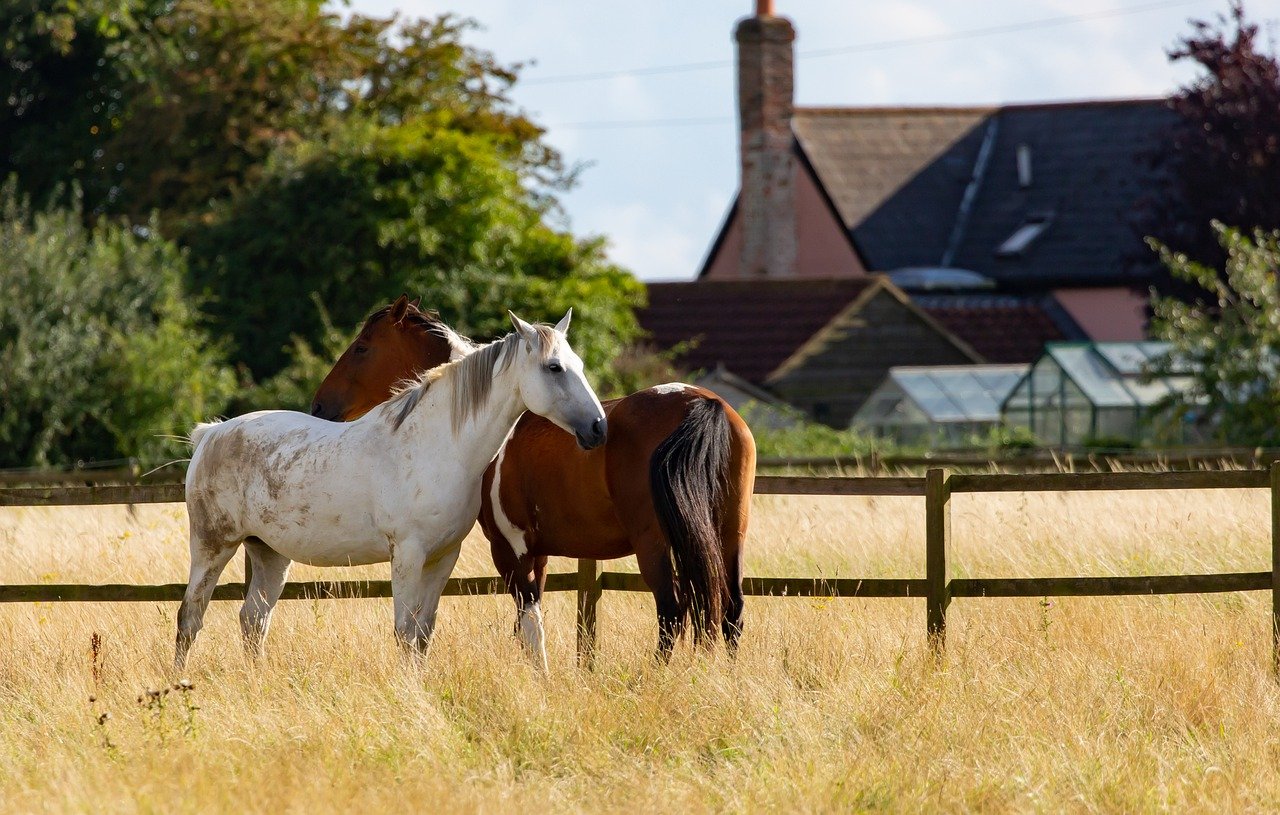The growth and development of horses is a crucial aspect of animal husbandry, particularly for horse breeders and owners. From foal to mare, the nutritional requirements of horses vary based on their age and stage of life. Hence, it is essential to provide them with adequate feed that meets their specific dietary needs at each stage.
Growing horse feed has become an increasingly popular topic in equine nutrition as research continues to uncover new insights into the best feeding practices for different stages of life. This article aims to explore the various types of feeds available for horses from birth to maturity, highlighting the key nutrients necessary for optimal growth and health. Through this examination, we hope to provide insight into how horse breeders and owners can better manage their animals’ diets throughout their lives.
Nutritional Requirements For Foals
Foals, the young offspring of horses, are a wonder to behold. They come into this world with an innate sense of curiosity and energy that is unmatched by any other animal. As they grow older, their nutritional requirements change drastically in order to facilitate proper growth and development.
One of the most important aspects of foal nutrition is ensuring that they receive adequate amounts of protein. Protein is essential for building muscle mass and supporting proper organ function. Additionally, foals require a significant amount of carbohydrates in their diets as well. These complex sugars provide them with the energy needed to run, play and engage in other physical activities.
Furthermore, minerals such as calcium and phosphorus are also critical components of a foal’s diet. Calcium plays a vital role in bone development while phosphorus supports cellular metabolism throughout the body. Ensuring that these nutrients are available in appropriate quantities will help ensure that your foal grows up strong and healthy. In the next section, we will explore feeding practices for weanlings which build on these foundational principles of equine nutrition.
Feeding Practices For Weanlings
Feeding practices for weanlings require a balanced and appropriate diet to promote healthy growth and development. Weanlings are young horses that have recently been separated from their mothers or dams, usually between four to six months of age. At this stage, they still require high-quality milk replacers, but gradually transitioned to solid feeds such as hay, grasses, and grain concentrates.
It is essential to provide adequate nutrition for the growing needs of weanlings without overfeeding them. Overfeeding can lead to obesity and developmental issues such as skeletal disorders or joint problems. Underfeeding may also result in stunted growth or malnourishment. Therefore, it is crucial that horse owners consult with equine nutritionists or veterinarians to formulate an individualized feeding program based on the specific requirements of their weanling.
Additionally, proper management practices should be implemented when feeding weanlings. Feeds must be kept clean and free from mold and dust particles that may trigger respiratory problems. Water should always be available and fresh; buckets or troughs must be cleaned regularly. A consistent feeding routine should also be established, preferably at least three times daily, avoiding sudden changes in feed types that may cause digestive upsets. By adhering to these best practices, horse owners can ensure optimal health outcomes for their growing weanlings.
Transition: Meeting the dietary needs of yearlings requires careful consideration of several factors beyond just providing sufficient nutrients for growth.
Meeting The Dietary Needs Of Yearlings
As yearlings approach their first birthday, they undergo significant changes in both size and dietary needs. These young horses are transitioning from a diet primarily consisting of milk to forage-based feeds. Meeting the dietary needs of yearlings is crucial as it affects their future growth and development.
One way to meet the nutritional requirements of yearlings is by introducing them to high-quality hay. This provides a source of fiber that promotes healthy digestion and prevents digestive issues such as colic. Yearlings also require protein-rich feed to support muscle development and proper skeletal formation. However, care should be taken not to overfeed, as this can lead to excessive weight gain and related health problems.
In addition to hay and protein-rich feed, supplementing with vitamins and minerals may be necessary depending on the quality of forage available. It is important to consult with a veterinarian or equine nutritionist when creating a feeding plan for yearlings. By providing balanced nutrition during this critical stage of life, we set these young horses up for success in their adult years where different feeding strategies need to be employed.
Feeding Strategies For Adult Horses
Adult horses have specific nutritional needs that differ from younger equines. These animals are usually engaged in more rigorous activities and require a diet rich in energy to sustain their daily routines. Feeding adult horses with the right balance of nutrients is important to prevent deficiencies, maintain healthy body weight, and promote overall health.
One essential aspect of feeding strategies for adult horses is providing them with adequate amounts of protein. Proteins help build muscles, provide energy, and support immune function. Adult horses need at least 10-12% crude protein in their diets to meet these requirements. Good sources of protein include alfalfa hay, soybean meal, and other legume-based feeds.
Another crucial component of an adult horse’s diet is fiber. Fiber helps promote digestive health by keeping the gastrointestinal tract functioning properly. Forage such as grass hay or pasture grazing should make up most of an adult horse’s diet. In addition to promoting gut motility, fiber also maintains proper hydration levels within the animal’s system.
Transitioning into special considerations for pregnant mares, it is important to note that these animals have increased nutrient requirements compared to non-pregnant adults due to fetal development demands. Proper nutrition during pregnancy can influence the growth rate and condition of the foal after birth. Next section will discuss some key dietary recommendations for gestating mares.
Special Considerations For Pregnant Mares
As we have just discussed, feeding strategies for adult horses are crucial to maintaining their health and well-being. But what about when a mare becomes pregnant? The nutritional needs of a pregnant mare differ significantly from those of an adult horse, requiring special considerations in her diet.
During the first two trimesters of pregnancy, mares require additional protein and minerals, such as calcium and phosphorus, to support the growth and development of the fetus. As the pregnancy progresses into the final trimester, energy requirements also increase as the foal grows more rapidly. It is important to adjust the mare’s feed accordingly to ensure that she receives adequate nutrition throughout each stage of gestation.
In addition to changes in nutrient requirements, there are other factors to consider when feeding a pregnant mare. For example, it is recommended that mares receive smaller meals more frequently throughout the day rather than one or two large meals. This helps prevent digestive upset and ensures that nutrients are being absorbed properly. By providing proper nutrition during pregnancy, owners can help ensure healthy foals and successful breeding outcomes without compromising on either dam or offspring’s condition.
Conclusion
From foal to mare, the nutritional needs of horses change throughout their lifespan. Providing adequate nutrition during each stage of life is crucial for optimal growth and development. Foals rely on colostrum from their mother for immunity and should start consuming solid food at about 2-3 weeks old. Weanlings require a diet that supports rapid growth while yearlings need a balanced diet with sufficient protein and minerals.
Adult horses have different dietary requirements depending on their workload, body condition, and age. Pregnant mares also require special consideration as they need additional nutrients to support fetal growth. Feeding practices must be adjusted accordingly to meet the changing nutritional demands of horses throughout their lives.
In conclusion, understanding the nutritional requirements of horses at every stage of life is essential in providing proper care and promoting healthy growth and development. From weanlings to pregnant mares, ensuring that horses receive a balanced diet with adequate amounts of proteins, vitamins, minerals, and water can prevent health problems and lead to better performance outcomes. However, it’s important not to forget that feeding strategies must be customized based on individual horse needs since there isn’t one-size-fits-all approach when it comes to equine nutrition. Remembering this anachronism – N.E.I.G.H (Nutrition Every Individual Growth & Health) – will help us remember how vital good nutrition is for every horse’s well-being!




